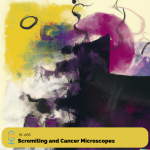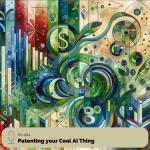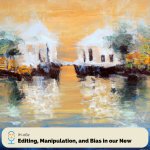April 25, 2024
No Comments
Out on the road today, I saw a Deadhead sticker on a Cadillac. No, Don Henley isn’t on the show. We did better; Simeon Schnapper, head of JLS Fund: A Plant MedicineFund, joins us. He brings a wealth of knowledge to the show, and we talk about investing in psychedelics, the issues between traditional use and modern medicine, and, most importantly, how to be ethical in this newly emerging world. This guy has been at the forefront of this field for so long that we could have talked to him for hours and almost did. We hope he comes back just to hang out.
Summary
In this conversation, Matt and Simeon discuss their personal experiences with psychedelics and their passion for the research and therapeutic potential of these substances. They talk about their involvement in the psychedelic community and the importance of integrating therapy with psychedelic experiences. Simeon shares his journey from being a curious teenager to becoming an investor in the psychedelic space. They also discuss the different areas of focus in their investments, including drug discovery and development, technology, and education. Overall, the conversation highlights the transformative power of psychedelics and the need for a balanced approach that combines science, therapy, and fun. The conversation explores the intersection of technology, psychedelics, and policy. The guests discuss the advancements in technology that allow us to scan the brain and observe its changes, as well as the potential of wearable devices to measure biometrics and track health. They also touch on the importance of policy and law in shaping the future of psychedelics and other emerging therapies. The conversation highlights the need to protect natural resources and indigenous knowledge while embracing technological advancements. The guests express optimism about the future and the potential for psychedelics to revolutionize mental health. In this final part of the conversation, Simeon discusses his passion for the potential of plant medicine, particularly in the context of the opioid crisis. He highlights the need for effective treatments for substance use disorder and the potential of plant-based therapies like ibogaine. Simeon also touches on the intersection of psychedelics and pharmaceuticals, emphasizing the medicalization and FDA approval of these substances. The conversation concludes with a discussion on the future of the industry and the challenges of keeping up with evolving regulations.
Keywords
psychedelics, research, therapy, investment, drug discovery, technology, education, technology, psychedelics, policy, brain scanning, wearable devices, biometrics, health tracking, natural resources, indigenous knowledge, future, mental health, plant medicine, opioid crisis, substance use disorder, ibogaine, psychedelics, pharmaceuticals, medicalization, FDA approval, regulations
Takeaways
- Psychedelics have the potential to transform consciousness and have therapeutic benefits.
- The psychedelic community is passionate about research and the integration of therapy with psychedelic experiences.
- Investment in the psychedelic space is focused on drug discovery and development, technology, and education.
- There is a growing trend in developing psychedelic compounds without the psychedelic experience, but the importance of therapy should not be dismissed.
- The transformative power of psychedelics lies in their ability to address root causes and promote healing. Advancements in technology allow us to scan the brain and observe its changes, providing valuable insights into the effects of compounds and therapies.
- Wearable devices have the potential to measure biometrics and track health, offering new ways to monitor and improve well-being.
- Policy and law play a crucial role in shaping the future of psychedelics and other emerging therapies, and it is important to consider the ethical and moral implications.
- Protecting natural resources and indigenous knowledge is essential while embracing technological advancements.
- The convergence of technology, psychedelics, and policy is creating exciting possibilities for the future of mental health. Plant medicine, particularly ibogaine, shows promise in treating substance use disorder and addressing the opioid crisis.
- The psychedelic industry is moving towards medicalization and FDA approval, which offers more legitimacy and protection for these therapies.
- Keeping up with evolving regulations and analogs is a challenge in the psychedelic industry.
- The cannabis industry paved the way for the acceptance and legalization of psychedelics.
- There is growing interest and investment in the potential of plant medicine, both from a medical and economic standpoint.
Chapters
00:00 Introduction and Background
03:23 The Passion for Psychedelics and AI
09:23 The Transformative Power of Psychedelics
14:06 Psychedelics as a Profound Experience
23:38 The Intersection of Technology and Psychedelics
26:50 Psychedelics and Root Cause Healing
27:21 Exploring the Intersection of Technology and Psychedelics
29:05 The Potential of Wearable Devices in Health Tracking
30:34 The Role of Policy and Law in Shaping the Future
36:36 Balancing Technological Advancements and Environmental Conservation
39:35 The Promising Future of Psychedelics in Mental Health
54:51 The Potential of Plant Medicine
55:03 Latecomers to the Space
56:30 The Forgotten Compound
57:55 Introduction to Plant Medicine
58:22 Challenges of Opioid Treatment
59:10 Detox and Withdrawal
01:00:48 The Potential for Growth
01:01:07 Political Support for Research
01:02:29 The Future of the Industry
01:06:58 The Importance of the Plant
01:07:33 Challenges of Keeping Up with Regulations
01:08:44 The Slow Progress of Legalization
01:09:18 The Gateway Legality of Cannabis
01:14:28 Connecting on LinkedIn
Podcast: Play in new window | Download









